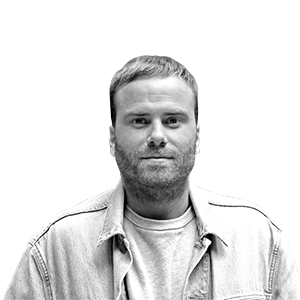Andrea Orlandi, former Barça player: "My heart stopped for 16 minutes."
The Barcelona player, who had to retire due to a heart problem, nearly lost his life in a tennis match.


BarcelonaSometimes, if a patient doesn't respond after six attempts at CPR, they're already declared dead. Andrea reacted to the electric shock on the seventh attempt, sixteen minutes after his heart stopped while playing an undemanding amateur tennis match. "Malik [one of the players on the court next door] allowed some oxygen to reach my brain by giving me cardiac massage while waiting for the ambulances. But, while I was in a coma for four days, the doctors weren't sure in what condition I would wake up, and they told my wife as much" (1984), who made his debut for Barça's first team with Frank Rijkaard as coach, in a conversation with ARA.
"Revived." That's the word the doctors at Hospital Clínic wrote in Andrea's medical report a year and a month ago. Although he doesn't remember anything from that day, he'll never forget March 23, 2024. His heart is at 49% capacity, he can't play sports again, he must take medication and wear a subcutaneous defibrillator for the rest of his life, he can't cook with an induction oven or be near the object, he can't consume caffeine or alcohol, he's had to stop working for the media, and it's harder for him to travel. But he still has his daughters and wife by his side, he has no brain damage, and he dedicates himself to representing soccer players. "The truth is, I'm fine. It's been more of a physical recovery than a mental one. I'm very grateful; I have a new opportunity. It's not that I appreciate things more, it's that I'm happier," he reflects. The brightness in his eyes confirms it.
When Andrea woke up in the ICU of Hospital Clínic, he had no idea where he was. But he realized he was intubated and surrounded by wires, and his first instinct was to remove them. The nurses had to calm him down. The 16 minutes of cardiac arrest had led to the onset of multiple organ failure, which manifested as pneumonia and liver shock. His wife was responsible for explaining what had happened to him. "I was surprised. I started touching my body, where I had burns from the electric shocks, and the first thing I asked was how the girls were." Once he was certain his daughters were okay, he calmed down. "I accepted it and took it well. I wasn't scared. The hospital staff gave me a lot of energy and positivity, and I'm already a positive person." Andrea's story is the account by journalist Adrià Soldevila in the twentieth edition of the book The solidarity stories of sportAndrea wants everyone, apart from Malik, who saved her life at the Laietà Sports Club to be mentioned. They are Ricard, Sergi, and Albert. "We didn't know each other at all, and now we're friends."
Retirement as a footballer
On February 20, 2019, the Italian Football Federation's cardiology specialist, Dr. Zeppelli, at the Gemmelli University Hospital in Rome, where Pope Francis was admitted in the final weeks of his life, had confirmed that Andrea had a serious heart problem. Specifically, a scar in his left ventricle that caused potentially dangerous arrhythmias that were incompatible with elite physical activity. The scar, discovered during a cardiac MRI, meant that at some point in his life he had suffered a silent heart attack or had an infection that had affected his heart.
Dr. Zeppelli was blunt. "He told me my tests were worse than those of Astori and Morosini [two Italian footballers who died in active service due to heart problems] and that if I didn't need football financially to live, I should retire. When I replied that I didn't need it and that I had two daughters, he told me I was done." Andrea was 34 years old and had just joined Virtus Entella, a team from Chiavari, a town near Genoa, then playing in Italy's Serie C. It was during the medical to confirm his signing that Drs. Saporiti and Brignole first detected a heart problem, which Dr. Zeppelli later confirmed.
When he was told the results of Virtus Entella's medical, Andrea thought it was a mistake. It just wasn't possible that he, who had repeatedly pushed his heart rate to 200 beats as a player for Alavés, Barça, Swansea, Brighton, Blackpool, Anorthosis, APOEL, Novara, and Chennaiyin, was now told he had a problem of that magnitude. So, during the weeks he had to wait for the second test in Rome, he signed up for the gym. "There I beat myself up badly. On the treadmill, I beat myself up so much that I broke my calf. My concern was: when they tell me there's nothing wrong with my heart, how will I tell them I can't train because of my calf, they'll think, 'What a signing they made!'" But unfortunately, it wasn't a mistake. Andrea didn't even train with Virtus Entella, and that's where his career ended.
Previous scares
Looking back, could you get an idea of when the silent heart attack or the infection that caused the scar might have occurred? "In India, I lost six or seven kilos. Physically, I was very tired. I thought my body was telling me I couldn't go on because I'd reached 34." He also experienced worrying situations in Wales and Italy. "When I played for Swansea, I had double vision for a month and a half, and then I was sent off, and with Novara, I got dizzy in the last ten minutes of a match, and they had to put me on a stretcher while they gave me pastries in case it was a sugar problem." He'll never know if these episodes were indicators that something was already wrong.
